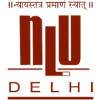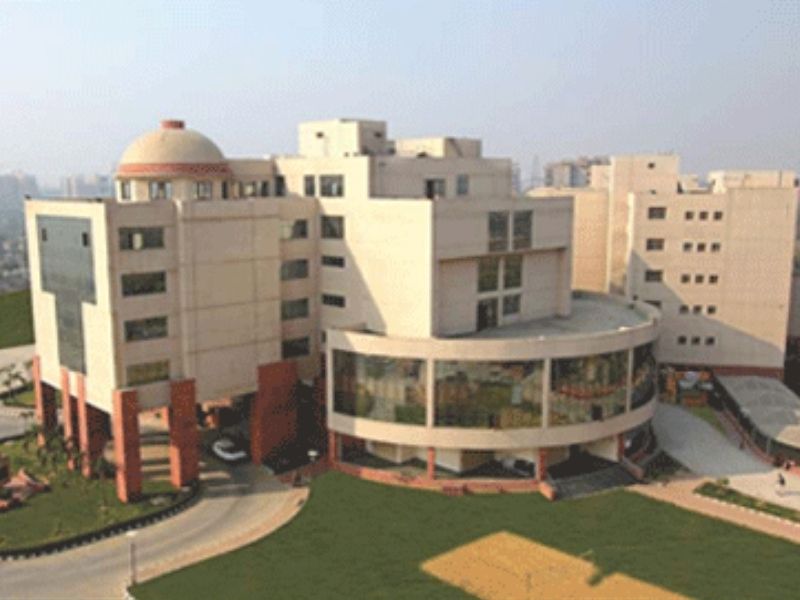

Established
2008Streams
LawOwnership
GovernmentStatus
College Type
Postgraduate, UndergraduateOverview
National Law University, Delhi (NLUD)was established by the National Law University, Delhi Act, passed by the Legislative Assembly of the National Capital Territory of Delhi on December 26, 2007. NLUD is an institute of excellence striving for all around development and holistic growth to create enterprising, sensitized, socially aware legal personalities.
The university offers 5 years integrated B.A. LL.B (Hons) degree programs with effect from the Academic year 2008-09. It was inaugurated by the former President of India, Pratibha Patil. The intake every year is limited to 70 (Indian) + 10 (Foreign National) students, through AILET (All India Law Entrance Test, conducted by NLU Delhi). It is reckoned as one of the newest law schools in India that has achieved immense success in a relatively narrow time frame.
NLU Delhi has been ranked amongst the top 5 law colleges in India by the EducationWorld C-fore survey 2013.
Campus
NLU Delhi hosts a wi-fi enabled campus with spacious classrooms that can comfortably accommodate 80 students and one of the best libraries among national law schools across the country. The campus also houses two canteens; food joints such as KFC, Pizza Hut, Dominoz are sited near-by and deliver orders on campus. There are also two ATMs, one inside the campus and one just outside the main gate of the college.
Academics
Undergraduate programmes:
B.A. LL.B. (Hons.)
Postgraduate programmes:
LL.M.
Post Graduate Diploma- Urban Environmental Management And Law | Tourism And Environmental Law | Eco-Tourism
Ph.D. (Law)
Placements:
The training and placement cell of NLUD organizes the annual placement drive for students. The cell also organizes workshops and training programmes on communication skills and personality developments, mock interviews and tests, etc. to prepare students for the final recruitment process.
The training and placement cell first invites recruiters to visit campus for placements. The cell finalizes the dates of visit and other eligibility criteria applicable to the recruiters. Students wishing to participate in the placement drive have to register and submit their resumes to the cell, after which they shall attend pre-placement talks to be made aware of the recruiters and their specifications. The selection process comprises a written test consisting of MCQs on quantitative aptitude, logical reasoning, English competency, etc., a group discussion and interview round. Candidates clearing all levels of selection successfully will be offered jobs by the recruiters, merit judged on the basis of their performance in the selection tests and interviews.
Recent placement highlights- 2020: A total of 45 B.A. LL.B. and eight LL.M. students were placed successfully into reputed law firms and corporations. The median CTC recorded for B.A. LL.B. students stood at INR 18 LPA, while the average CTC for LL.M. students was recorded at INR 8 LPA. Top recruiters included Trilegal, OYO, S&R Associates, Khaitan & Co and Herbert Smith Freehills.
General Information
 Accomodation
AccomodationYes
 Library
LibraryYes
 Student Mix
Student MixMen and women
 Internet Wi-Fi
Internet Wi-FiYes
Admission
B.A. LL.B. and LL.M. Admission
Selection Criteria: AILET scores
Eligibility for B.A. LL.B: Should have passed the Higher Secondary School Examination (10+2) system or an equivalent examination with a minimum aggregate of 50% marks.
Eligibility for LL.M.: should have passed the LL.B. or an equivalent degree from a recognised University with a minimum aggregate of 55% marks (50% for reserved categories).
Admission procedure:
- Candidates have to register and appear for the All-India Law Entrance Test (AILET) and secure a valid score to apply to NLUD.
- Candidates have to apply for admissions online by filling out the online application form from the official website along with the submission of documents and payment of application fees.
- Candidates shall be shortlisted based on their AILET scores. Selected candidates may proceed with document verification and fee payment to confirm their admission.
Doctoral Admission- Ph.D.
Selection Criteria: University-conducted written admission test.
Eligibility: Obtained a master’s degree in law/ master’s degree with M. Phil in social sciences or humanities from any recognised university with a minimum aggregate of 55% marks OR Candidates holding a position as a Judge of any State High Court in India with three years’ experience or Judge of Supreme Court of India.
Admission procedure:
- Candidates have to apply for admissions online by filling out the online application form from the official website along with the submission of documents and payment of application fees.
- Candidates have to apply and appear for the written entrance test conducted by the university. Candidates with UGC NET/ JRF/ SLE qualifications or valid M.Phil. Law scores need not appear for the written test, and can directly submit their research proposal and present it before the doctoral committee.
- Candidates will be selected based on their performance in the written test. This shall be followed by an interview round. Shortlisted candidates may proceed with document verification and fee payment to confirm their admission.
Fees: Please contact the university for detailed information on fees.
Achievement
NLU Delhi was ranked second among law colleges in India in The National Institutional Ranking Framework (NIRF) rankings 2020.
Accommodation
The college offers two separate well maintained hostels for boys and girls. Students live on a triple sharing basis for first three years and then move on to double or single sharing in the 4th and 5th year. Each hostel has a common equipped with LED TV with DTH connection and a TT Table. Each hostel also has a gym equipped with all the modern facilities. Each hostel has a separate mess which provides decent meals to the students.




















